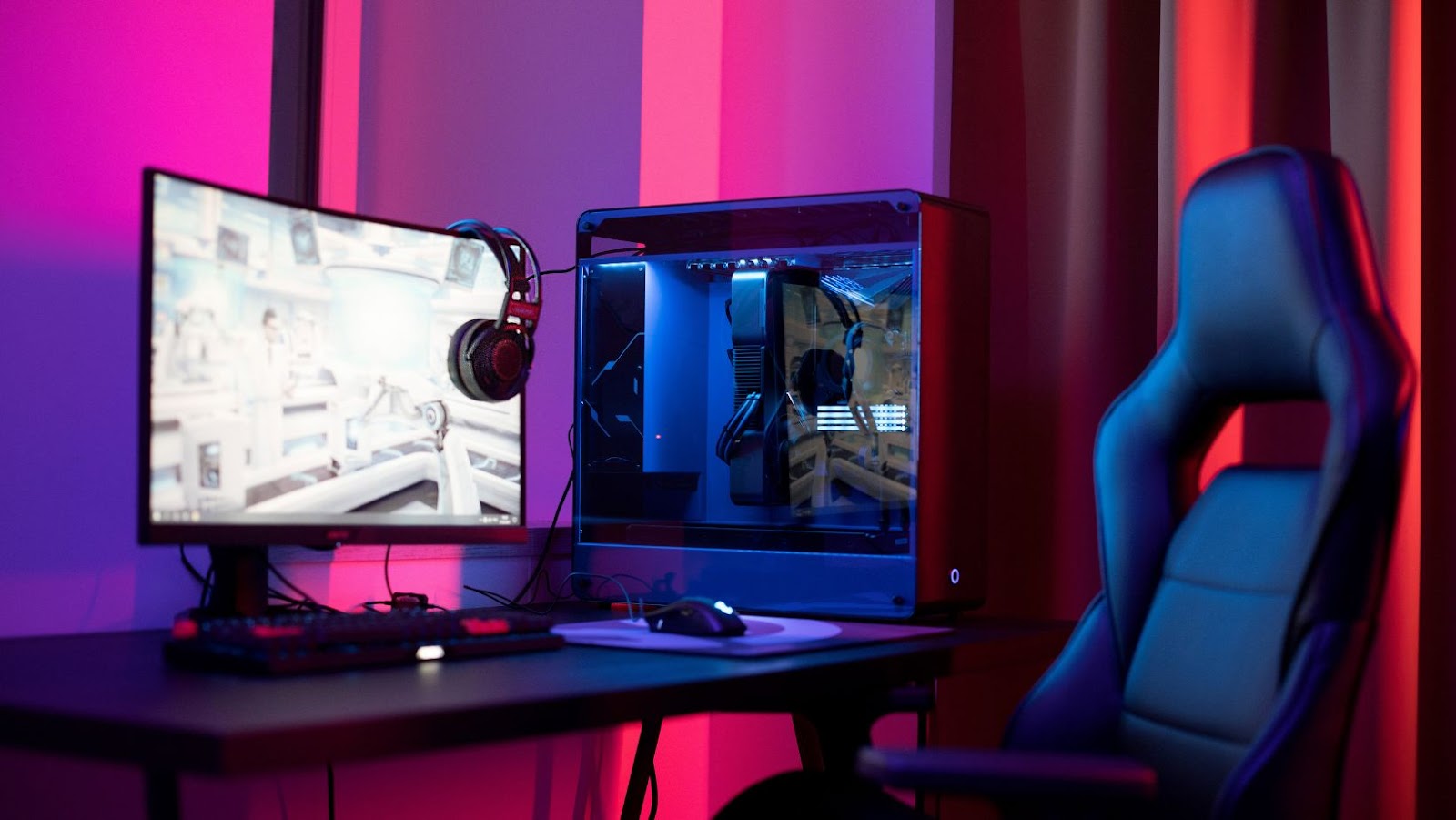
Justin Kan, co-founder of Twitch and CEO of Atrium, recently expressed his desire to take NFT gaming to the Solana blockchain. This statement is unsurprising as Solana has recently gained much traction in the cryptocurrency world. In addition, the Solana blockchain offers a low-cost, high-speed platform that could fit NFT gaming well.
Let’s examine why Justin Kan wants to take NFT gaming to Solana.
Justin Kan wants to take NFT gaming — and Solana
Justin Kan is a serial entrepreneur, investor and media figure best known for his involvement in creating popular startups like Twitch and Atrium. Beyond tech entrepreneurship, Justin actively supports blockchain technology and the cryptocurrency movement. Recently, he has set his sights on creating a new gaming experience powered by Non-Fungible Tokens (NFTs) on the Solana blockchain network.
To better understand why Justin Kan wants to take NFT gaming to Solana, it’s important to first examine his background and accomplishments in technology. Justin’s career began with a stint at Y Combinator where he helped found the popular platform Twitch. From there, he launched Atrium and co-founded Exec and Socialcam. He was also an early investor in Coinbase during its growth curve in 2013.
These experiences gave Justin valuable insights into the technological possibilities that blockchain networks can offer entrepreneurs today, particularly regarding automated contract execution, which underpins many currently explored NFT projects. With over one million daily active users recorded across their DeFi apps and games this year 2021, Justin has established himself as a prominent leader in decentralized finance (DeFi). Now he wants to take it one step further by tapping into an entirely different industry segment – gaming!
Overview of NFT gaming
Non-fungible tokens (NFTs) are pieces of digital art, collectibles, gaming items or other digital assets stored on a blockchain. Each asset is stored on the blockchain as a unique code and has monetary value, allowing buyers and sellers to exchange these tokens for cryptocurrency or fiat currency. As such, NFTs are an increasingly popular way for individuals to create a game or token-based experience that rewards users with financial rewards and something unique and valuable within the game.
Justin Kan, an entrepreneur and investor best known for founding Twitch in 2011, recently announced plans to launch NFT gaming on Solana through his company Offworld. With Solana’s increasing prevalence as a premier network for ICOs and stablecoins, this foray into NFT gaming marks another step in decentralizing the game industry.
Mainstream audiences are beginning to gain traction across the world of blockchain technology due mainly to widely known assets such as Bitcoin and Ethereum; however NFT Gaming remains in its early stages. Accordingly, Justin Kan’s implementation specifically aims to create trustless games by relying on simple structures while focusing much more on user status rather than optimizing economic outcomes from traditional games such as gambling or financial instruments. In addition to revolutionizing the gaming industry as we know it now, Justin Kan’s vision for Solana also looks forward towards driving mainstream adoption of blockchain technology by utilizing novel methods such as making rare items tradable across different games via interoperability between blockchains like Ethereum and Solana’s ledger system SiloNet Solution™.

Reasons for Justin Kan’s Interest in NFT Gaming
Justin Kan, co-founder of Twitch and CEO of Atrium, has recently expressed interest in taking NFT gaming to the Solana blockchain. NFT gaming is one of the rapidly growing segments within the crypto industry, and Solana is a blockchain project that brings scalability and low-cost transactions to the industry.
In this article, we will examine the reasons for Justin Kan’s interest in NFT gaming, and the potential benefits of using Solana as the platform for NFT gaming.
Financial benefits of NFT gaming
Despite the hype and enthusiasm generated by NFT gaming, Justin Kan is one of the few individuals who has embraced its potential and identified numerous opportunities to capitalize on this trend. In particular, Kan is drawn to the financial benefits achieved in the NFT gaming market.
One such benefit relates to Solana (SOL) — a blockchain-powered platform that utilizes proof of history consensus. Unlike other blockchain networks, SOL provides a higher degree of speed and scalability at low costs as it can process up to 50,000 transactions per second. This ensures that performance will remain consistent even when high levels of activity are taking place on the network, which becomes valuable for game developers and eliminates load times during play.
The fast transaction speeds also cut down on cryptocurrency fees that typically accompany most Ethereum-based networks transactions. Lower transaction fees will enable gamers, developers, and creators to keep more profits and provide their solutions for crypto-enabled marketplaces with minimal overhead costs.
Overall, Justin Kan has determined that investing in NFT gaming is a smart move given its potential for high returns due to its low cost entry points and its real-world application among gamers and investors alike. Furthermore, he believes utilizing Solana’s technology will offer greater flexibility when building decentralized business models resulting in higher profit margins than other blockchain projects — allowing him to make strategic investments that complement his existing portfolio without having large amounts of capital at risk.
Increased exposure and visibility
Justin Kan, the founder of Atrium and a gaming fan, has been exploring the potential of non-fungible token (NFT) games to be launched on Solana’s layer-1 blockchain. His interest in this type of gaming stems from the fact that it provides increased exposure and visibility to game developers.
Because NFTs exist on a decentralized ledger, they provide a public and immutable record of ownership. This allows game developers to link ownership of digital assets such as characters, cards, in-game props and other items to crypto wallets. As more users become interested in non-custodial digital wallets, they can also use their wallets to access NFT games. This means more visibility and larger user bases for game developers creating games based on blockchain technology.
In addition, by leveraging Solana’s Layer 1 platform, game developers can create high performance games with low transaction costs and quick finality. In other words, these games will be able to scale quickly and reach a wider audience globally. By combining these two factors – increased visibility through linked crypto wallets and low transaction costs – Justin Kan aims to create an open platform for players who want quick action with minimal delays or fees associated with playing NFT based games like traditional online or offline consoles.

Benefits of Solana
Justin Kan recently announced that he wants to take NFT gaming to Solana. Solana is a high-performance blockchain platform designed to provide scalability and security. This platform is becoming increasingly popular due to its scalability and security, so it’s easy to see why Justin Kan might want to take his NFT gaming projects to Solana.
Let’s look at some of the benefits of Solana and why it might be the go-to blockchain platform for NFT gaming.
Scalability
Solana is an ambitious project in the distributed ledger space, primarily focusing on scalability. The power of Solana lies in its proof-of-stake (PoS) consensus mechanism. This allows it to handle large volumes of transactions quickly, which means that Solana can offer the speed and throughput required to facilitate the kind of real-time NFT gaming experience Justin Kan has in mind.
Unlike other blockchain networks such as Ethereum, which aim for transaction speeds up to 15 transactions per second (TPS), Solana uses unconventional tools and techniques to achieve a transaction throughput rate as high as 50,000 TPS. This scalability makes it one of the fastest and most reliable blockchains for gaming applications like those envisioned by Justin Kan. To put it simply, Solana’s scalability makes it an ideal platform for games that require a rapid and secure settlement layer.
Moreover, Solana provides low latency when executing commands within its protocol – meaning users can send real-time tokenized information quickly within the network, thus enabling an even quicker response time when playing games that consume tokens or need semi-real time action interfaces. Ultimately, this provides gamers with a better overall gaming experience than what would be experienced using other slower networks.
Low transaction costs
One of the major benefits of using the Solana blockchain network is its low transaction costs. This is due to its unique consensus mechanism, Proof of History (PoH). This allows Solana to process far more transactions than a traditional blockchain network while maintaining low transaction costs. As a result, transactions on Solana can be completed in under a second and cost just a fraction of a cent. This makes it an ideal option for developers who build applications requiring lightning-fast transactions, such as NFT gaming.
The other advantages of the Solana blockchain are its scalability and stability. Using its consensus protocol, called “Tower BFT”, the network can achieve near-instant transaction finality and up to 50,000+ transactions per second (TPS) with plans to reach 1,000k TPS in future releases. This makes it an attractive option for developers looking for a scalable platform for games or other applications requiring fast transactional processing power.
Moreover, the Solana blockchain is built on a decentralized platform that provides robust security guarantees and enables developers to build resilient games that are unlikely to suffer from outages due to central points of failure or malicious attacks by bad actors attempting to gain access control the system.

Security
The most significant benefits of using Solana for gaming come from its strong security. Solana is designed to be the most secure public blockchain by leveraging the familiar Proof-of-Stake model. This model allows users to securely validate transactions, making it difficult for malicious actors to break into and exploit the system.
In addition, Justin Kan’s team has enabled several additional security mechanisms in the Solana Network, such as threshold signature verification, which allows multiple parties to finalize transactions without knowing each other’s private keys, and Cryptonote. This memory-hard protocol resists certain attacks on cryptocurrency networks. These measures go beyond what has been done in most other blockchain networks, making them one of the safest games platforms available today.
Conclusion
Justin Kan wants to take NFT gaming to the Solana blockchain and has created a project to make it happen. He believes that the Solana blockchain has the potential to solve the issues of scalability and high transaction costs that current blockchains have, while remaining energy efficient and offering near-instant transactions.
In this article, we talked about the advantages and disadvantages, and argued for why Justin Kan believes Solana is the best choice for NFT gaming.
Summary of Justin Kan’s ambitions
Justin Kan, the co-founder of Twitch, has teamed up with Solana, a Web3 platform, to create the first NFT gaming ecosystem that allows gamers to collect, buy and sell NFTs across all gaming titles. He believes that blockchain technologies will revolutionize how video game companies handle in-game assets and provide more transparency and security for gamers.
In particular, he is pushing for using Solana’s scalable Proof-of-History consensus algorithm to significantly reduce transaction costs and improve game performance. Justin’s ambition lies in delivering a seamless gaming experience that still holds to his ultimate goal of making people feel connected online. If successful, this could be the first step towards creating a more viable NFT industry where traditional gaming can be enriched with those unique digital goods associated with blockchain technology.
Future of NFT gaming and Solana
As Justin Kan has noted, there is tremendous potential in Solana when it comes to applying NFT gaming technology. The platform offers an extremely high-performance blockchain infrastructure with an average blocktime of 400 ms and transaction speeds of around 50,000 TPS. This makes Solana the perfect platform for developing , deploying, and running games that require fast transactions. Additionally, the lack of fees makes it attractive to developers who don’t have to worry about budgeting for gas prices when creating their games.
In addition to higher performance and lower cost, another factor that makes Solana a future leader in NFT gaming is its support for emerging technologies such as Decentralized Autonomous Organizations (DAOs) and Decentralized Application Layer (DAL). These technologies are being used by businesses worldwide to drive efficiency and cost savings while providing greater opportunity for organizational stakeholders. By leveraging these technologies on Solana’s blockchain infrastructure, developers can create games that offer immersive experiences while providing secure platforms that foster trust between players and governing authorities responsible for issuing NFTs.
Moreover, Justin Kan believes that Solana’s commitment to scalability and interoperability is key in taking NFT gaming forward. He points out that if multiple blockchain infrastructures operated in parallel, games could be cross-platform, resulting in more competitive gameplay and increased monetization opportunities between multiple platforms. With increased investment within the ecosystem from large firms such as Alameda Research completing Series A investments now totaling $400 million this year alone , this could prove an incredibly lucrative development area over the coming years.
tags = Justin Kan, NFT gaming, Solana, Twitch co-founder, blockchain, kan nft fractal paradigm capital labstakahashiventurebeat, Ethereum, NFT gaming marketplace,












